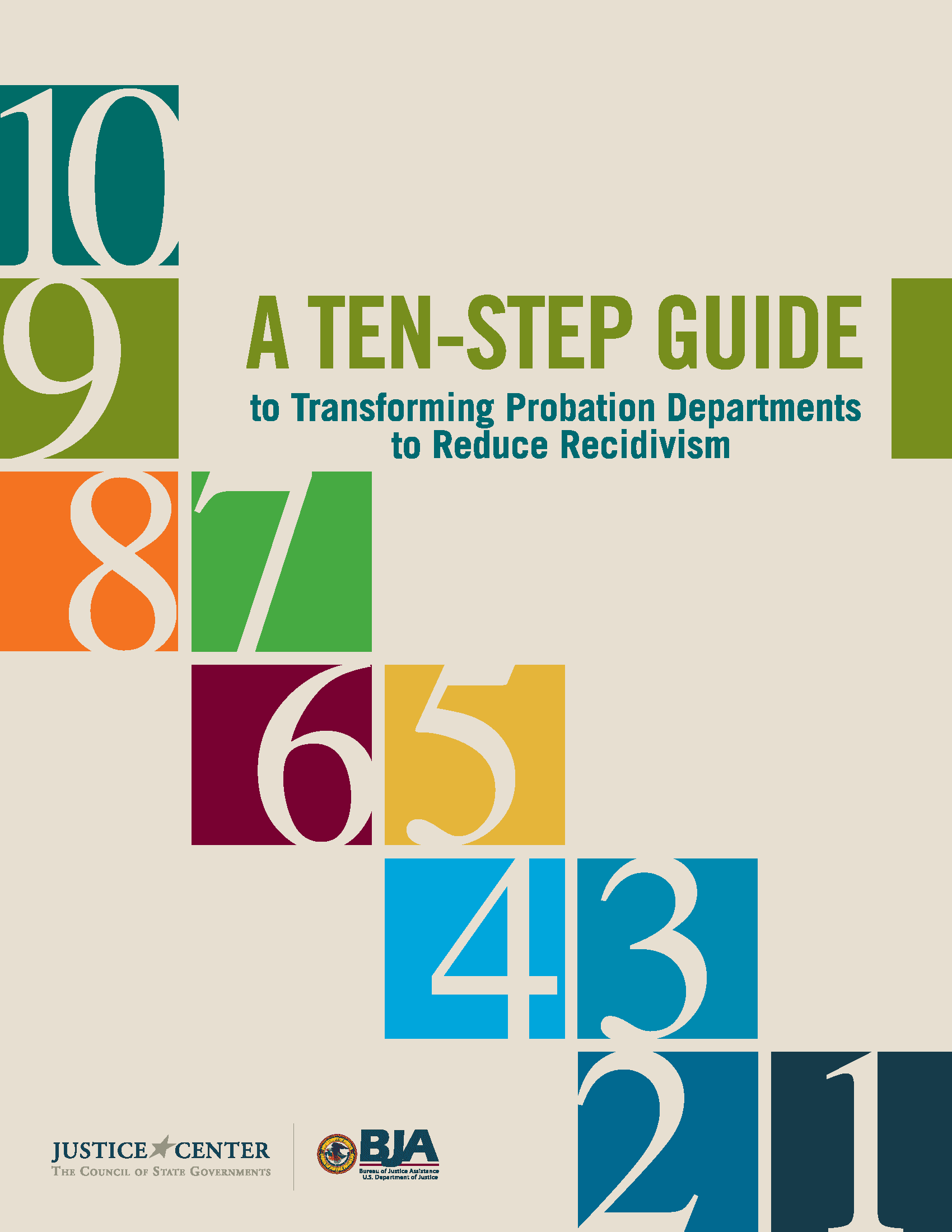A Ten-Step Guide to Transforming Probation Departments to Reduce Recidivism
This publication from The Council of State Governments Justice Center outlines four core practices probation leaders and policymakers should follow when working to reduce recidivism and improve public safety in their communities, which are: (1) effectively assessing peoples' criminogenic risk and needs, (2) employing smart, tailored supervision strategies, (3) using incentives and graduated sanctions, and (4) implementing performance-driven personnel management practices that promote and reward recidivism reduction.
A Ten-Step Guide to Transforming Probation Departments to Reduce Recidivism also describes how officials can engage key stakeholders, evaluate agency policies, and develop a strategic plan for implementing reform; provides recommendations for redesigning departmental policies and practices; and includes steps for making a department transformation permanent. Included are numerous examples of how these steps were used in the Travis County, Texas, probation department, which saw felony probation revocations decline by 20 percent and one-year rearrest rates fall by 17 percent after implementing practices outlined in the guide.
Online Course
In 2019, the American Probation and Parole Association released an online course designed in partnership with the National Reentry Resource Center. Based on A Ten-Step Guide to Transforming Probation Departments to Reduce Recidivism, the course provides a ten-step action plan to help a probation department visualize transformation of its practices from beginning to end, and to align it with the four practices of recidivism reduction.
 New Hampshire Continues Justice Reinvestment Effort to Improve Conditions for People Who Are High Utilizers of Criminal Justice and Behavioral Health Systems
Read More
New Hampshire Continues Justice Reinvestment Effort to Improve Conditions for People Who Are High Utilizers of Criminal Justice and Behavioral Health Systems
Read More
 New Hampshire Commission Reviews Final Policy Recommendations to Reduce Reliance on Incarceration as Part of Justice Reinvestment Initiative
Read More
New Hampshire Commission Reviews Final Policy Recommendations to Reduce Reliance on Incarceration as Part of Justice Reinvestment Initiative
Read More
 Three Things to Know About New Jersey’s Groundbreaking Community Response Legislation
Three Things to Know About New Jersey’s Groundbreaking Community Response Legislation
In response to growing calls for police reform in New Jersey, particularly following the shootings of Najee Seabrooks and Andrew Washington in March and August 2023, a coalition of law enforcement officials, mental health professionals, and community advocates partnered to explore public safety response alternatives.
Read More













